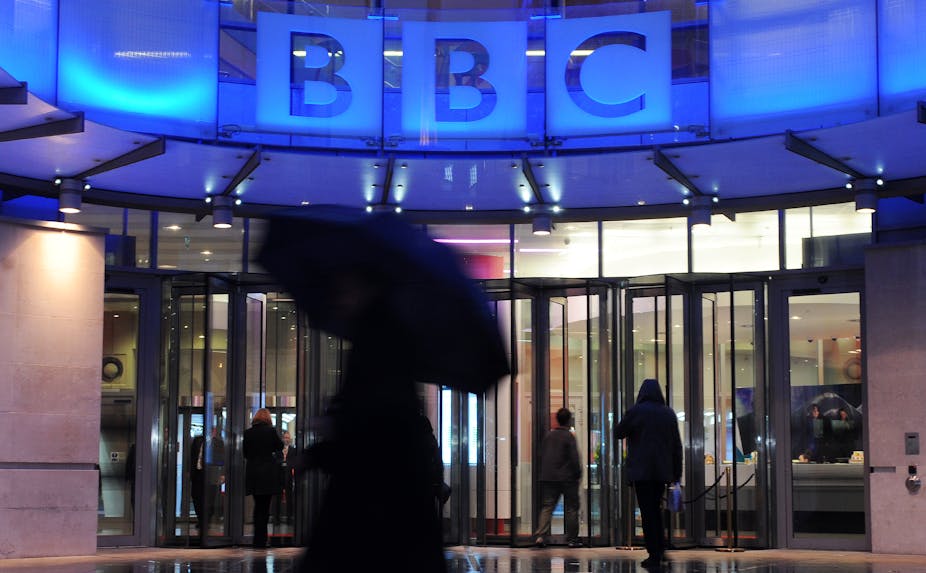The BBC is regularly subject to accusations of bias from both sides of the political spectrum. For those on the right, it provides a liberal metropolitan perspective which one might associate with left-wing politics. For some on the left, the BBC represents a conservative (with a small “c”) worldview: deferential to the monarchy, supportive of the party of government, and firmly part of the establishment.
To understand the changing ways British users get their news, we’ve been looking at data from the British Social Attitudes survey – the country’s longest running and most authoritative survey of social and political attitudes, conducted annually by the National Centre for Social Research since 1983. As you might expect, there has been a growing trend for people to get their news online: while one in five did so every day in 2010, two in five did by 2016. But despite the rise of online-only upstarts like Buzzfeed and HuffPost, our survey results reveal that the BBC website is still dominant. Half of people we surveyed said it was the news website they visited most often.
The BBC has retained this dominance since our records began in 2010. Only three other websites have a significant share of the online audience: Mail Online, Sky, and The Guardian – all of which have offline counterparts.

This chimes with other recent research that shows the BBC is way ahead of other news sources when it comes to levels of public trust and perceptions of accuracy and impartiality.
There is certainly no suggestion that people are consuming less news. News media will continue to change, and it is likely that more people will start to get news direct from social media feeds rather than visiting other websites. In North America, for example, Facebook is the second most popular source of news, after television news. There are, however, justifiable worries that as the landscape continues to fragment, it will lead to a narrowing of perspectives.
While there is a counter-argument that online news content could create a more vibrant and diverse democracy, the BBC can be seen as a guardian of competing perspectives. Indeed, this has led some to argue that the US needs an equivalent to the BBC to improve their democracy. So, in future, we should probably worry less about political attacks on the BBC and be more vigilant for signs these attacks are quieting down. If that happens, it might signal a slowdown in the high-quality, independent journalism that a thriving democracy needs.

